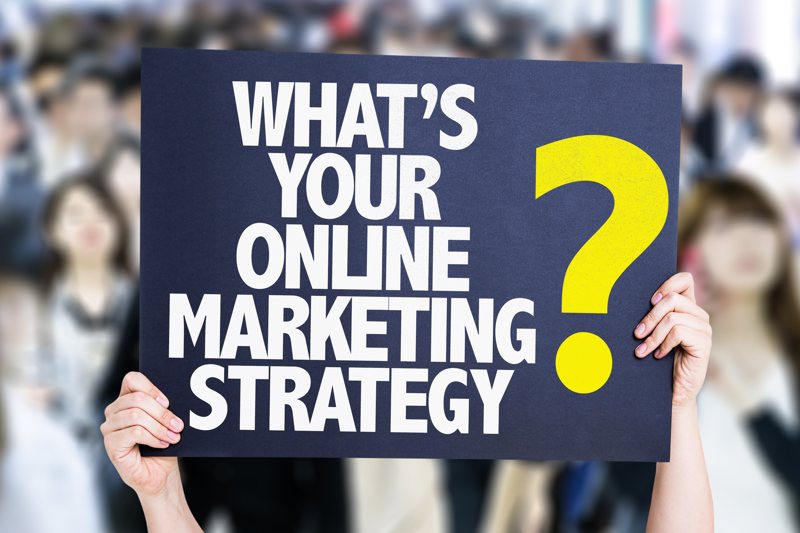 The most common goal for small businesses with a website is to turn visitors into customers. But first, you need to get people flowing into your website. To boost traffic, you have two options, pay-per-click advertising (PPC) and search engine optimization (SEO). Each has a differing philosophy for the same solution. You may think to choose one over the other. Ideally, you should implement both. They compliment each other and lead to a more successful overall marketing strategy for small business.
The most common goal for small businesses with a website is to turn visitors into customers. But first, you need to get people flowing into your website. To boost traffic, you have two options, pay-per-click advertising (PPC) and search engine optimization (SEO). Each has a differing philosophy for the same solution. You may think to choose one over the other. Ideally, you should implement both. They compliment each other and lead to a more successful overall marketing strategy for small business.
Pay-Per-Click Advertising
With PPC advertising, your advertisement is inserted on search engines using keywords or social media platforms through targeting an audience. The frequency your advertisement is shown is determined by how much you’re willing to pay. To learn more in depth about PPC advertising, view our blog post “PPC Digital Advertising for Small Business”.
Search Engine Optimization
With SEO, you increase traffic for “free” by implementing strategies on your website to show listings on search engine results pages. You don’t pay for these listings directly, but a successful SEO campaign takes a lot of time and effort. To learn about the basics of search engine optimization, view our blog post “What is SEO? A Primer for Small Business”.
How PPC & SEO Compliment Each Other
These two marketing strategies are often separated into silos. Sometimes, businesses use varying approaches, have different teams working on each, or even hire two marketing agencies to handle them individually. This is the wrong solution. PPC and SEO can easily share data among campaigns to identify strengths, weaknesses, and allow for better decision making for both. An integrated marketing strategy is the ideal approach.
Keyword Research Sharing

When people perform searches on Google, they type in keywords, phrases, or questions for what they’re seeking. The search engine matches the users query with keywords listed for ads, and keywords matching information on a website page. When using both PPC and SEO marketing, you want to research keywords people are actually searching, competition on those keywords, and how likely it is your ad or website page will show. Because both work off of keyword research and search queries, you can utilize this information in both PPC and SEO campaigns.
One way to make sharing work for you: pay-per-click works faster than search engine optimization. You can perform keyword tests with a PPC ad campaign, quickly gather data, then apply it to your SEO strategy to help your long game.
Written Content & Offer Analysis
Similar to keyword research, you can test ad copy or offers and use the findings in your SEO strategy. Because analytics from advertising is useful so quickly, you can easily discover what text is resonating with your audience or what offers are more intriguing for them to click. Then, you can utilize the same text and offers on certain website pages for SEO.
One way to make content sharing work for you: once you discover what text and offers are clicked on most often in your PPC campaign, you can add the offers to many of your titles or meta descriptions for website pages. These titles and descriptions are what show up in search engine results. Remember, when using well tested text and offers, still keep in mind the topic of the website page and important keywords for this topic. Good SEO is making sure your text and keywords actually fit the content of the page.
Learning Your Target Market
 With PPC advertising on social media platforms, you target specific groups of people based on age, gender, location, interests, and more. If you’re trying to learn your target market, or figure out what part of your target market connects better with your product or service on the Internet, utilizing social media is smart. Learning what market is interested in your ads can help you hone in on your message and tailor your offers on both search engine PPC campaigns and SEO.
With PPC advertising on social media platforms, you target specific groups of people based on age, gender, location, interests, and more. If you’re trying to learn your target market, or figure out what part of your target market connects better with your product or service on the Internet, utilizing social media is smart. Learning what market is interested in your ads can help you hone in on your message and tailor your offers on both search engine PPC campaigns and SEO.
For example: let’s say you sell clothing for woman of all age ranges, from 20s to 70s. You set up some PPC ads on Facebook and over time discover woman around the age of 30 who live in California seem most interested in your ads. Knowing this, you can focus on performing SEO on products more specifically for 30 year olds and not waste time on optimizing the clothing pages for 70 year olds. You’ll may also consider setting up a new website page focusing on California, and clothing fitting the California style. This is a good way to think outside the box!
The Benefits of an Integrated Strategy for Small Businesses
Saving Resources
Combining all your efforts such as keyword research, content analysis, and target market tests allows you to save valuable time in your marketing efforts. The extra savings can go back into your marketing budget, or utilized in a different aspect of your small business.
 Complimentary Timelines
Complimentary Timelines
Pay-per-click advertising is a short term gain. You pay for clicks and you get an increase in visitors immediately. Add more money to your bids and you can receive even more clicks. You could even add a higher daily budget to your campaign and receive more clicks in any given day.
Search engine optimization is a long term investment. You set up your website pages with smart content, keywords, and a strong strategy and see results slowly over time. It’s possible to do so well with SEO you may not need as many PPC ads. But one will always cover you, helping you turn Internet users into website traffic, and hopefully customers!
One Expertise Source
If you do hire an agency or expert to help with Internet marketing, combining efforts and strategies allows you to focus on working with only one. This helps reduce costs, scope, and time. Plus, only needing to contact one place regarding your marketing can cut down on consultation or meeting time.
What if You Don’t Have the Budget For An Integrated Marketing Strategy?
You shouldn’t look at PPC and SEO as separate marketing. You might feel like you don’t have the budget for both, but when you view them as one holistic integrated marketing strategy, your budget can go much further.
Maybe you’re currently over capacity and don’t feel the need to gain immediate traffic. In this case, it’s okay to focus only on SEO, but we never suggest doing PPC without an SEO strategy to go along with it. You’ll miss out on sharing resources and a year from now you’ll regret waiting so long to start.